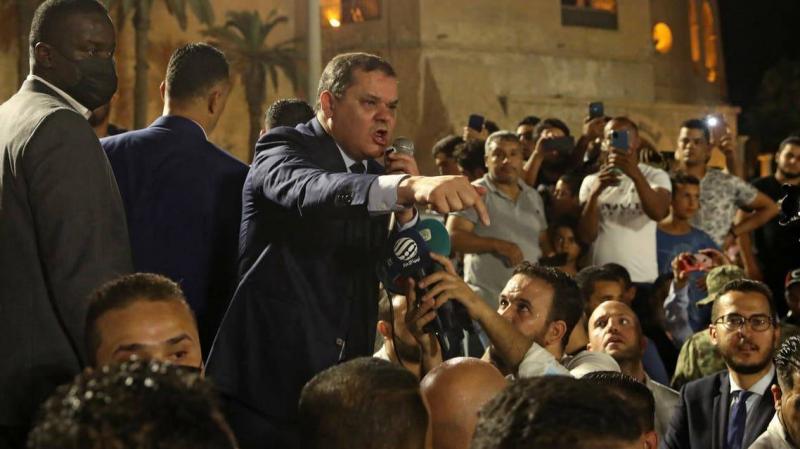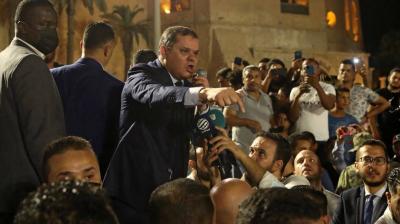The Libyan Parliament's move on Tuesday to withdraw confidence from the Government of National Unity led by Abdul Hamid Dbeibah has cast a shadow over the general situation in Libya, heightening international, especially UN, concerns regarding the fate of the elections scheduled for December 24. The vote by the House of Representatives highlighted the tensions among competing factions and governmental bodies, undermining the United Nations' efforts to resolve the ongoing crisis in Libya, which has persisted for ten years, through the establishment of a government and the holding of general elections.
The UN mission in the country expressed these concerns, stating that the government remains legitimate until it is replaced by another. It indirectly criticized the "clashes" between political actors in Libya, suggesting that the involved parties should "focus on completing the preparations for the constitutional and legislative framework for the elections and refrain from any action that could undermine the electoral process, the unity, security, and stability of the country," according to its statement released last night.
Since March, following the current government's confidence vote, disputes have arisen over the electoral law intended to regulate the upcoming electoral task, which the international community hopes will help pull Libya out of the chaos in which it has been mired for years. While the Speaker of Parliament, Aguila Saleh, announced this month (September 2021) that the House had approved a law for presidential elections, no final vote has been conducted on the draft law, and the High Council of State based in Tripoli has moved to challenge its legitimacy, issuing its own alternative electoral law.
The House of Representatives, elected seven years ago but divided when Libya itself splintered, has yet to issue any law regarding parliamentary elections. Beyond elections and their legal framework, other disputes persist between the parliament and the government over powers, public fund expenditure, institutional unification, and development, among other issues that have strained relations between the two sides.
The confidence withdrawal step complicates the scene further, with many observers expecting it to hinder the political process in the country and jeopardize the UN roadmap that culminates in the elections. Libya may find itself trapped in a new cycle of political divisions and conflicts, which have never fully disappeared among the rivals.




